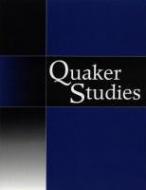
Abstract
One of the distinctive features of Quakerism from the 1650s until the 1870s was its stance against any kind of pay for ministers, what Friends referred to as 'hireling ministry'. Friends viewed a paid, authoritative pastoral ministry as contrary to Scripture, as tending toward preaching that pleased humans rather than God, as limiting the leadings of the Holy Spirit, and as generally corrupting. One of the criticisms of Orthodox by Hicksite Friends in the 1 820s was that the Orthodox were compromising this testimony by associating with clergy of other denominations in reform and humanitarian causes, and both Orthodox and Hicksite Friends in the United States invoked this tradition to discourage Friends from joining abolition societies after 1 830. Between 1 860 and 1 900, however, most Friends softened their stance. Hicksites, while eschewing paid ministry, came to view labeling other minister as 'hirelings' as being uncharitable and judgmental. American Gurneyites, swept up in a wave of revivalism in the 1 870s, came to embrace pastoral ministry as the best way of caring for converts. In the British Isles, however, equally evangelical Friends of Gurneyite sympathies, for complex reasons, while also ceasing to label other clergy as 'hirelings', after some controversy and for complex reasons, rejected the pastoral system.
Recommended Citation
Hamm, Thomas D.
(2009)
"'Chipping at the Landmarks of our Fathers': The Decline of the Testimony against Hireling Ministry in the Nineteenth Century,"
Quaker Studies: Vol. 13:
Iss.
2, Article 2.
Available at:
https://digitalcommons.georgefox.edu/quakerstudies/vol13/iss2/2
